Right now, senior leaders of Hamas, the perpetrators of the worst atrocity against Jews since the Holocaust, are huddled in Qatar. They’ve been there for years. But American foreign policy has turned a blind eye. Why? One reason might be that for the last 25 years, this small, energy-rich state has pumped billions into America to purchase influence and good favor.
The Qataris have spent their lavish fortune at American law firms, on lobbying contracts with former senior officials, and on junkets and partnerships with big media companies. The biggest recipients of Qatari largesse, though, have been major universities and think tanks.
The numbers are staggering. According to a 2022 study from the National Association of Scholars, Qatar today is the largest foreign donor to American universities. The study found that between 2001 and 2021, the petrostate donated a whopping $4.7 billion to U.S. colleges. The largest recipients are some of America’s most prestigious institutions of higher learning. These schools have partnered with the regime to build campuses in Doha’s “education city,” a special district of the capital that hosts satellite colleges for American universities:
Since 1997, Qatar has donated more than $103 million to Virginia Commonwealth University for a fine arts campus.
Since 2001, Qatar has donated $1.8 billion to Cornell for a medical school.
Since 2003, Qatar has donated nearly $700 million to Texas A&M for an engineering campus.
Since 2004, Qatar has donated $740 million to Carnegie Mellon University for a computer science campus.
Since 2005, Qatar has donated $760 million to Georgetown University for a school of politics.
Since 2008, Qatar has donated nearly $602 million to Northwestern University for a school of journalism.
One might expect that scholarly institutions that have benefited from this autocracy’s money would rethink their partnership after Qatar’s foreign minister said that “Israel alone is responsible” for the pogrom perpetrated by Hamas terrorists. Or after Qatar’s prime minister on Friday declined to close the office Hamas maintains in its capital. But these universities have given no indication that they will end their profitable partnership with Qatar.
All but one university on the list declined to comment on the future of their Doha campuses when contacted by The Free Press. Kelly Brown, a spokeswoman for Texas A&M, gave the following statement:
Maintaining relationships with countries like Qatar serve a broader purpose, including fostering international dialogue and cooperation. Texas A&M’s relationship with Qatar is focused on educational and research activities, which contribute to the academic and intellectual development of both countries. That, in turn, hopefully will one day lead to peaceful resolutions rather than conflict.
She added that Texas A&M has clear and transparent agreements with Qatar that accord with U.S. and international laws. “No public funds are spent toward the Qatar campus,” she said.
In the last 25 years the universities have justified these joint ventures with Qatar as a way to liberalize an autocratic society and bring American soft power to the Middle East. Indeed, Qatari officials have themselves given lip service to this goal.
In 2015, Hunter R. Rawlings III, who was Cornell’s president when it opened its medical school in “education city,” told The Washington Post: “Part of our thinking was, most American involvement in the Middle East has to do with guns and oil. This project seems to have to do with medicine and education. It’s such a different message. Why don’t we try it?”
The reality, though, is much different. Many of these schools have had to compromise their values on their campuses in Doha. For example, in 2014 Qatar censored Love Comes Later, a romance novel set in London and Qatar written by Mohanalakshmi Rajakumar, an English professor at Virginia Commonwealth University’s Doha campus.
In some cases, the universities cooperated with Qatar’s strategic interests. The Qatar campus of Northwestern, whose U.S. journalism school is ranked as one of the best in the world, signed a memorandum of understanding with Al Jazeera, the Qatari-funded news channel that has provided a sympathetic platform for Hamas and other Islamist groups over the years, to help train its reporters.
In 2013, Sheikh Ahmed bin Jassim al-Thani, then director general of Al Jazeera, said of the new partnership: “Al Jazeera Network places the development of its team’s skills at the top of its priorities, to stay par with the great media-related feats Qatar has accomplished regionally and internationally.”
But are Northwestern’s interests really aligned with Qatar? Al Jazeera aired a weekly program hosted by Muslim Brotherhood cleric Yusuf al-Qaradawi between 1996 and 2013. Al-Qaradawi was denounced by the Anti-Defamation League in 2013—the same year that Northwestern signed its agreement with Al Jazeera—as the “theologian of terror.” In one 2009 sermon aired on the network, he said: “I will shoot Allah’s enemies, the Jews, and they will throw a bomb at me, and thus I will seal my life with martyrdom.”
In 2015, Stephen Eisenman, who was then president of Northwestern’s faculty senate, concluded in a report on his school’s Doha campus that professors there enjoyed only “limited academic freedom.” He said this was not so much because professors feared the state’s strict censorship regime, but because they lacked tenure and were answerable only to the dean of Northwestern’s Qatar campus.
Eisenman also acknowledged that “the ethics of establishing a campus in an authoritarian country are murky, especially when it inhibits free expression, and counts among its allies several oppressive regimes or groups.”
That glancing reference to Qatar’s alliance with Hamas and Iran is the only mention of the state’s funding and support for political Islam. Eisenman concludes that countries that export oil and natural gas are bad for the environment and are often marred by “social and racial inequality.” Not to worry. Eisenman notes, “those characteristics describe the United States no less than Qatar and don’t prevent Northwestern from maintaining campuses in Evanston and Chicago.”
Eisenman, now an emeritus professor, declined an interview request. In an email he told me, “Now more than ever, we need sincere efforts to achieve rapprochement between Muslims and Jews and between Palestinians and Israelis. If universities can help with this by means of educational exchanges, then I am all for them.”
Charles Asher Small, executive director of the Institute for the Study of Global Anti-Semitism and Policy, told me the funding of universities by Qatar is part of a much larger effort to exert soft power in the West. His institute estimates that the regime holds between $750 billion to $1 trillion worth assets throughout the world. “They are investing in major Fortune 500 corporations, Heathrow Airport [in London], the Empire State Building,” he said.
One reason why Qatar has been able to invest so much in American institutions is because U.S. foreign policy has embraced the country since the war on terror began after 9/11. Even though Qatar is aligned with Hamas, and to a lesser extent, Iran, it also hosts the Al Udeid Air Base. The Qataris are an important interlocutor between America and Iran. After President Biden’s chaotic withdrawal from Afghanistan, Qatar agreed to process more Afghan refugees than any other Arab ally. Today Qatar holds the $6 billion in Iranian oil revenues that America unfroze in September and refroze after the October 7 Hamas pogrom.
One of Qatar’s soft power aims is to advance the ideology of the Muslim Brotherhood, the Islamist movement that spawned Hamas and the ruling party in Turkey. According to a 2021 analysis from the Washington Institute for Near East Policy, Qatar funds the International Union of Muslim Scholars, the clerical arm of the Brotherhood. In 2017 Bahrain, Egypt, Saudi Arabia, and the United Arab Emirates imposed a trade and travel embargo on Qatar in response to its support of the Muslim Brotherhood. Doha’s embrace of political Islam is one factor that distinguishes it from its Gulf Arab neighbors who turned on the movement after the Arab Spring in 2010 and 2011.
Small, of the Institute for the Study of Global Anti-Semitism and Policy, said one consequence of Qatar’s support for the Muslim Brotherhood in its soft power operation abroad was to make Israel toxic in Western political and intellectual discourse. “Their soft power is aimed at demonizing Israel as well as promoting anti-Western and anti-democratic discourse to weaken the West. Antisemitism is the fuel to light that fire,” Small said.
If colleges think doing business with Qatar is worth the risk, they should pay closer attention to the story of the Brookings Institution.
Until 2021, the highest profile recipient of Qatari money in Washington was the Brookings Institution. In 2013, it received a four-year, $14.8 million grant to help fund the Brookings Doha Center. Brookings received another four-year grant in 2017 from Qatar, but the exact amount is unknown. The think tank doesn’t provide the precise amount its foreign patrons provide. In 2021 the institute ended its relationship with the Doha Center, claiming it was focusing in the future on “digital and global engagement.”
The closing of the Doha Center overlapped with an FBI investigation into retired Marine general John Allen, who was the president of Brookings between November 2017 and June 2022. Allen was forced out when the Associated Press disclosed the probe into Allen’s unregistered lobbying for Qatar. According to court papers, Allen pressed the White House to oppose the Saudi-led diplomatic blockade of Qatar, which the Trump administration initially supported. In January, the Justice Department closed the investigation into Allen and brought no charges.
While Brookings has ended its relationship with Qatar, other think tanks remain on the take. According to a 2020 report from the Center for International Policy, the Stimson Center has also received Qatari funding.
In 2022, the Stimson Center received $615,000 from the Qatari Embassy for a program described as “protecting people.” Caitlin Goodman, a spokeswoman for the center, would not tell me whether it was reconsidering its relationship with Qatar. “The integrity and independence of Stimson scholars and their research is central to the trust that policymakers and the public put in our work,” she said. “Our work does not reflect the views and motives of any individual funder.”
The challenge of foreign adversaries funding our universities is not limited to Qatar.
On Monday, House Select Committee on China Chairman Mike Gallagher (R-WI) warned leaders at top American colleges the Chinese Communist party was exerting “coercive influence” on campuses all over the country. According to Fox News, Gallagher warned dozens of university presidents to be clear-eyed about the Chinese threat.
“The question—as I see it—is how do we respond in a way that preserves our free and open society—including our higher education system with all its natural strengths—while maintaining our moral, intellectual, and financial integrity?” Gallagher asked. His question applies not only to China. It should also be asked of the universities that have partnered with a country that protects the leaders of Hamas and makes deals with Iran.
Eli Lake is a Free Press columnist and host of The Re-Education podcast. Follow him on X (formerly Twitter) at @EliLake. Read his last Free Press piece “Delusion in the White House. Bloodshed in Israel.”
And to support more of our work, become a Free Press subscriber today:


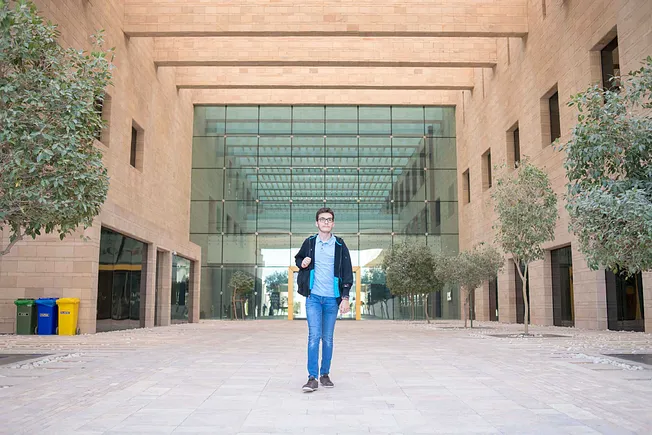


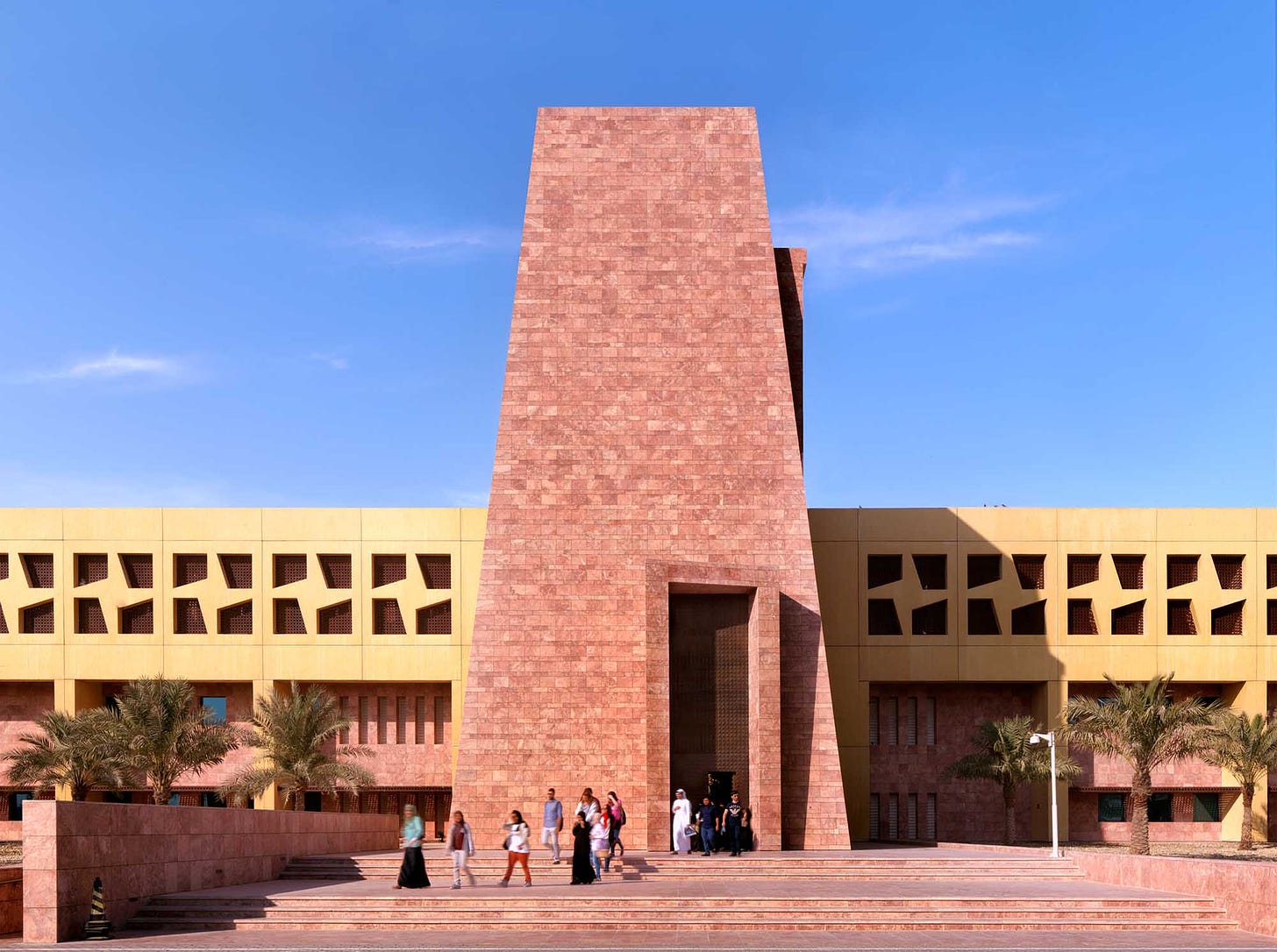
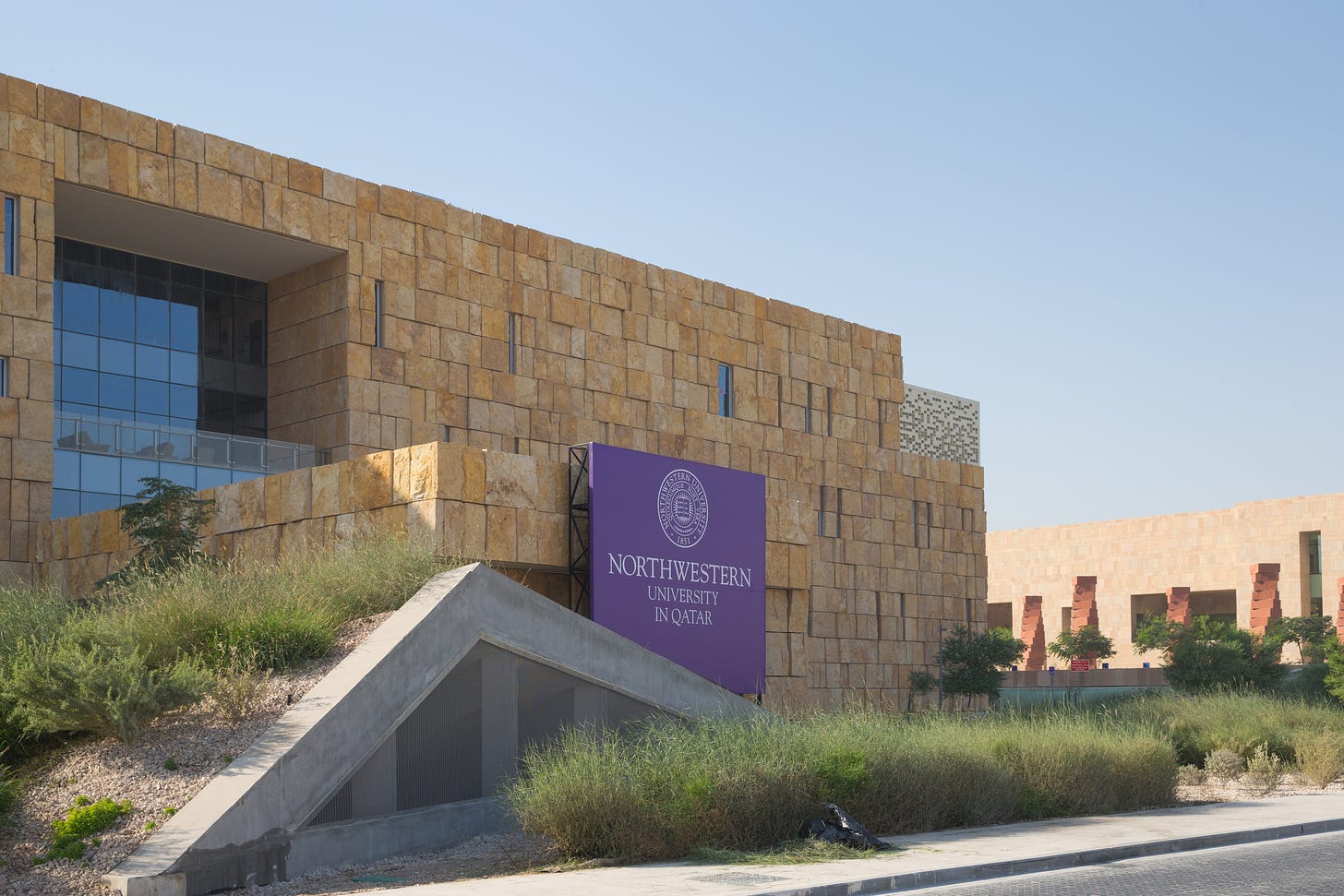





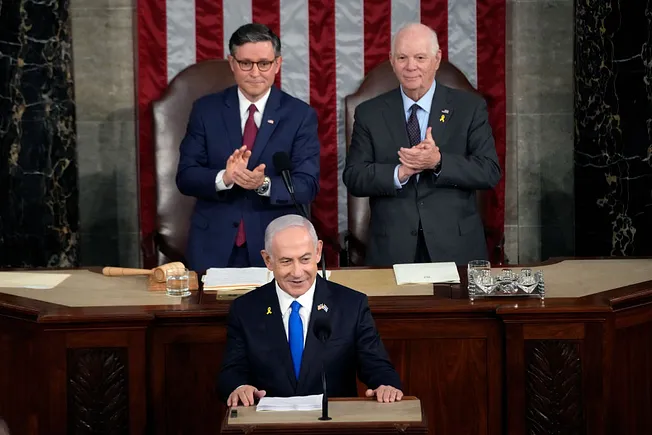
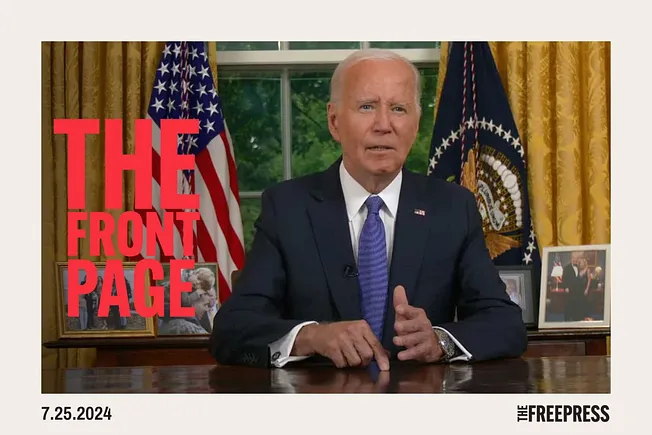
our Comments
Use common sense here: disagree, debate, but don't be a .